
GIVE THIS RAMADAN

In communities impacted by climate change, Action Against Hunger and our partners are helping families adapt and thrive.
Shilpi Khatun, 35, lives in the village of Gobindapur, Bangladesh, with her husband, Ziarul Islam, and three sons. The family lives close to the river, and each year the waters creep higher as the impacts of climate change become part of everyday life. Frequent flooding washes away income opportunities, possessions, and hope.
When disasters like floods hit and there isn’t enough food to go around, one of the coping mechanisms struggling families turn to is marriage. Shilpi, like many women and girls in this area, married at a very young age.
Shilpi and her husband work long and hard hours to provide for their family, but – until recently – it has never been enough. “There were days when we starved,” she remembers.
The floods, cyclones, and other extreme weather events return each year, taking everything they have. “Cows, goats, chickens get washed away every time we face disaster,” says Shilpi. “With small children, life on a coastal island is very challenging.”
“At least three months of the year, we stay waterlogged. We get no work or any way to earn money during the time of the flood season. Our neighbors can hardly help us with a loan because each of us is fighting the same battle. Each of us is fighting to bring food to our kitchen.”
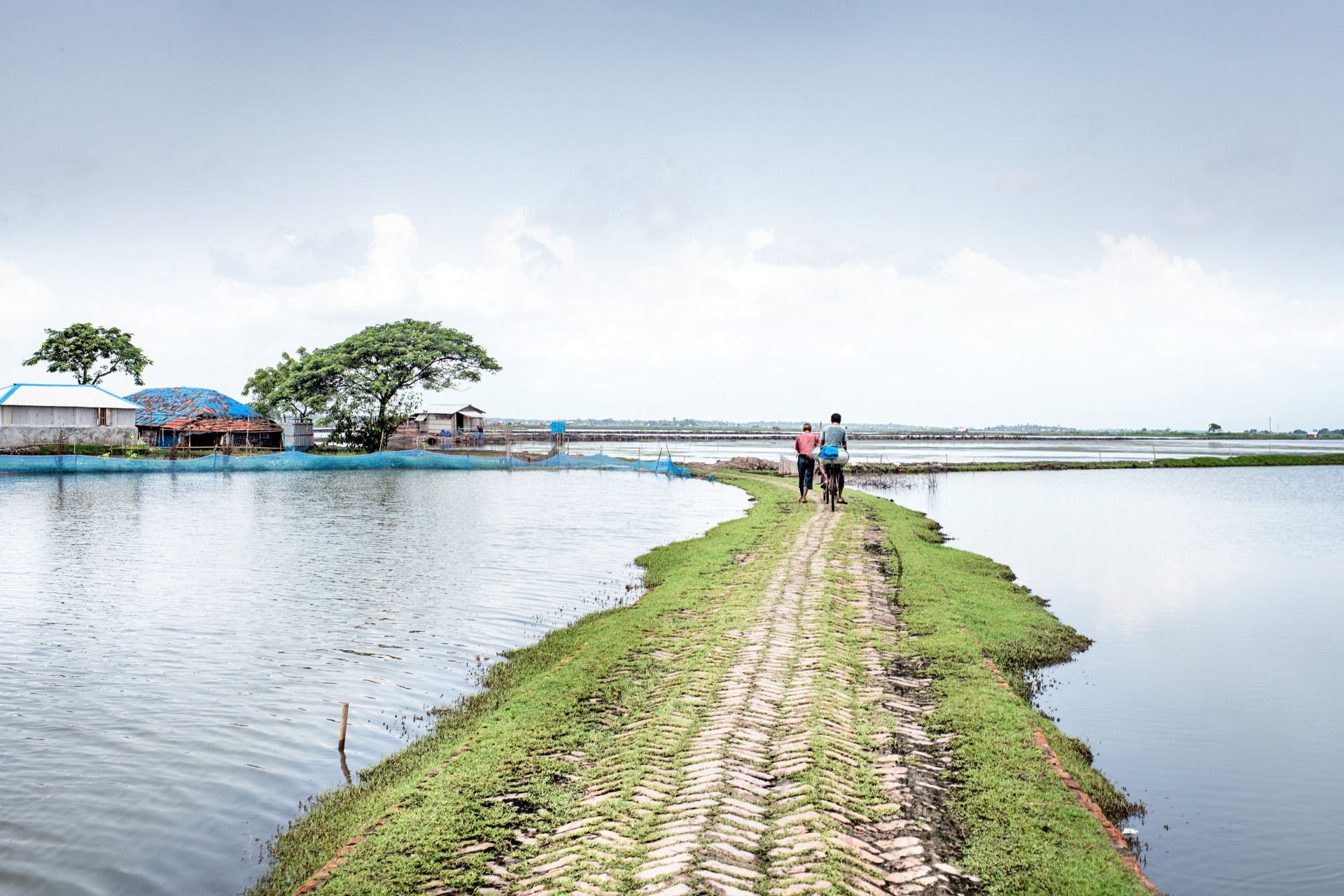
Shilpi had nearly given up hope that she could make a brighter future for herself and her children. Then, she learned about a new project in her community, and began to see how her neighbors’ lives were improving.
Working together, Action Against Hunger and the Soneva Foundation are helping families like Shilpi’s adapt to climate change. We’re teaching people new skills and offering business training, as well as supporting them to increase their food production at home by using climate-resilient farming methods. This dual action plan ensures that families can access nutritious food either from their gardens or with their income.
After talking it over with her husband, Shilpi joined the project. The couple took training courses and learned to work their land more effectively using resources they already had. Quickly, they became self-sufficient.
With a small investment of 3020 Taka – $35 – from Action Against Hunger and Soneva Foundation, Shilpi and Ziarul started growing vegetables on their land, and then expanded their garden to plant fruit and trees as well.
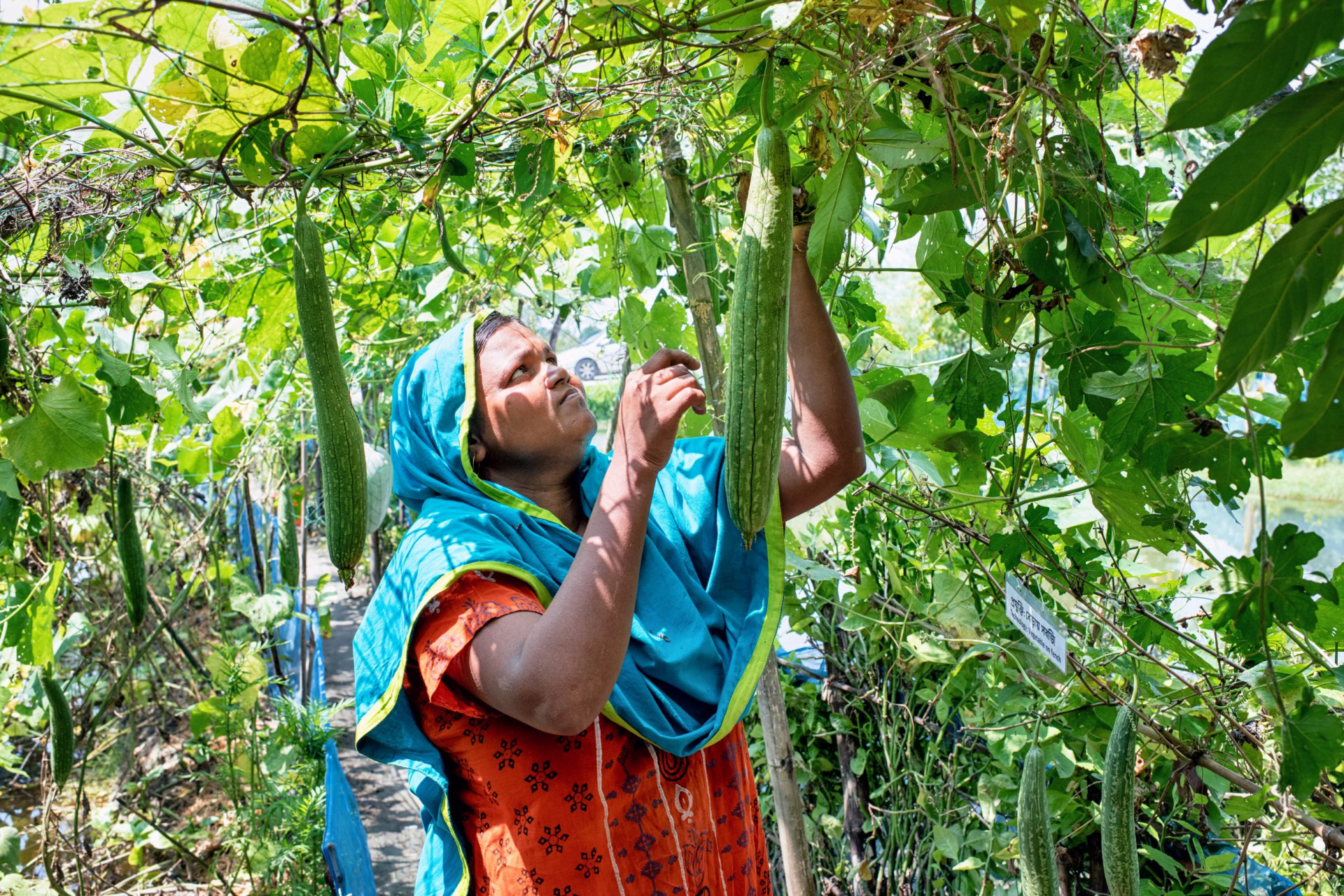
“Slowly, we started reaping the benefit of our hard work. We stopped working as day laborers and started giving our time to our vegetable garden. Before, I could not have time to give to our kids. But once we started working in our garden, I now can give time to our children. I help my oldest son with his studies, and we can feed our kids well.”
Shilpi has painful memories of the times when she did not have enough food to stave off hunger for her children. Two years ago, her youngest son fell sick with malnutrition, and his recovery back to health was long and difficult.
“Another time, my son Tamim wanted to have an ice cream, which was five Taka [about $0.05]. I could not afford it. He cried an entire day, and I cried, too, because I had no money at home,” she recalls. “Now, I always have money because we can sell things from our garden, and I can also help other neighbors in need.
In addition to growing vegetables at home, Shilpi and Ziarul are farming fish and rearing livestock.
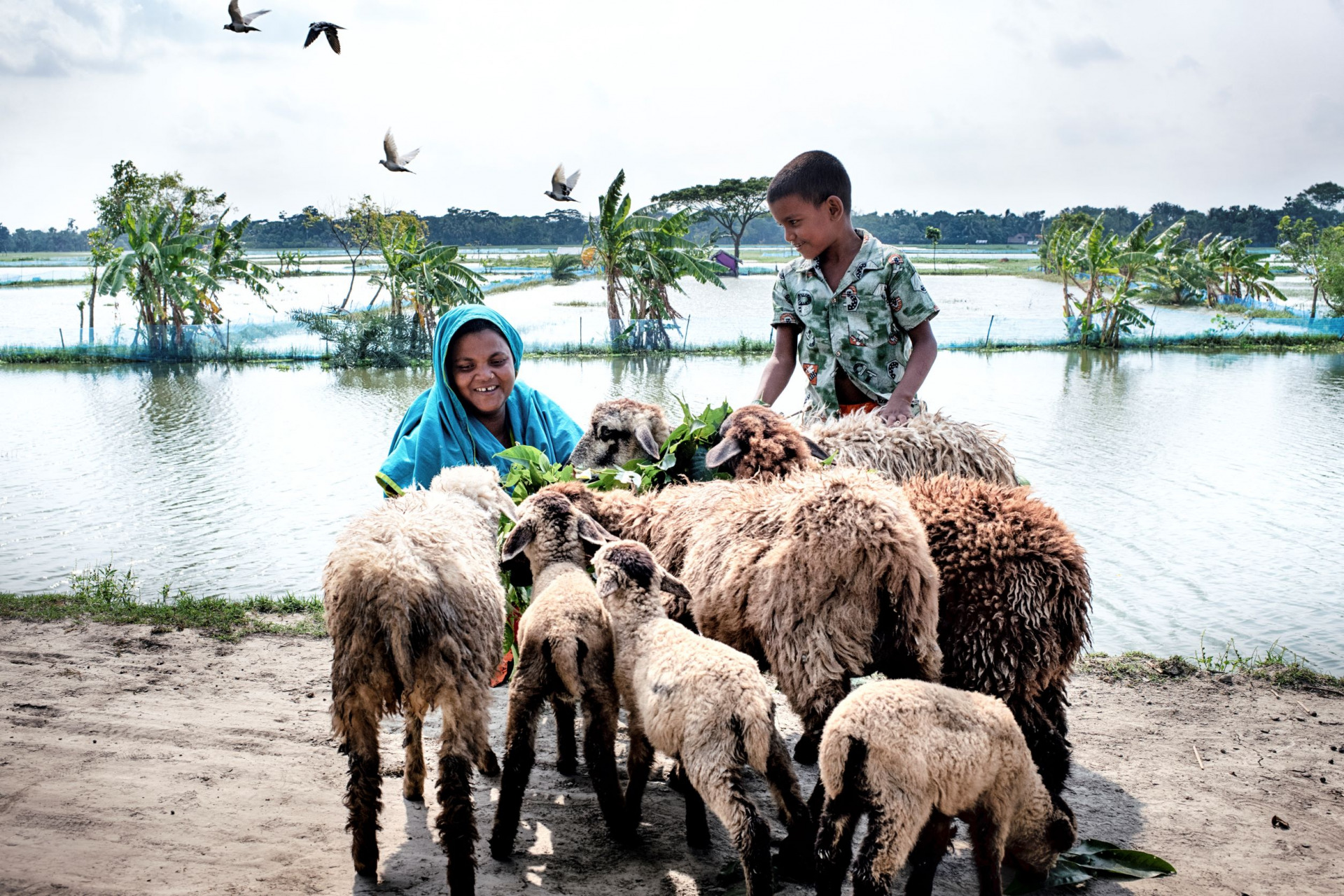
“We can now provide for our children,” she says, proudly. “My young children love fish, and their father brings fish from our pond almost every day now. My children’s health has improved so much, and I find I have more energy as well. After selling eggs in the market, I can give eggs to my family for our daily breakfast. This was never possible before.”
When she was growing up, Shilpi was not able to go to school. Like too many families in her community, her parents could not afford it. Life is different for her children: “I am pleased that our children can now go to school…I feel content knowing our hard work will is paying for their future.”

“We have experienced transformation. Our life has changed, and we are grateful,” she says. “I cannot imagine what we could do if we had not received this support. Now we eat well and have a good time together.”
“We feel proud. We want to continue working for our children for a better tomorrow.”
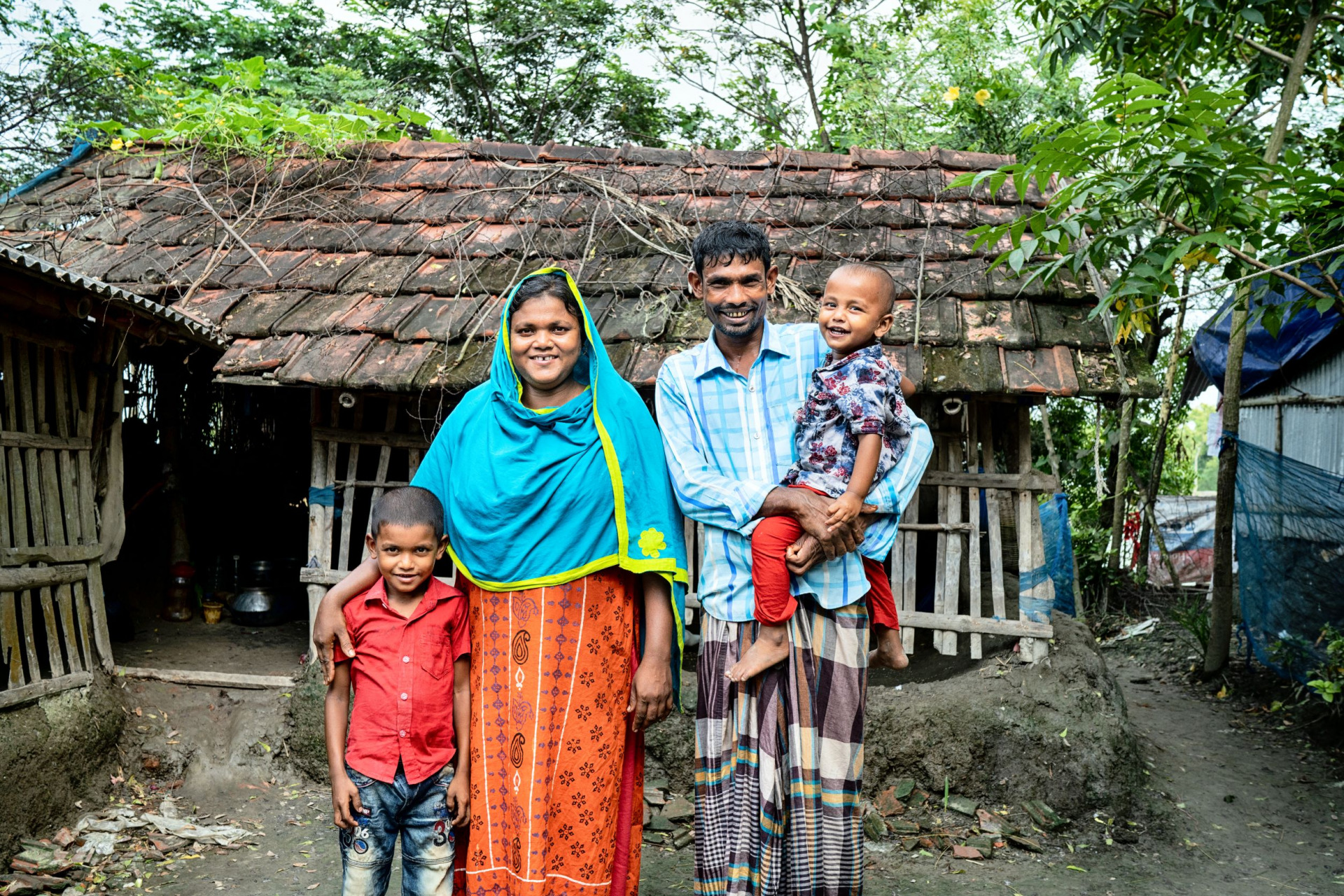
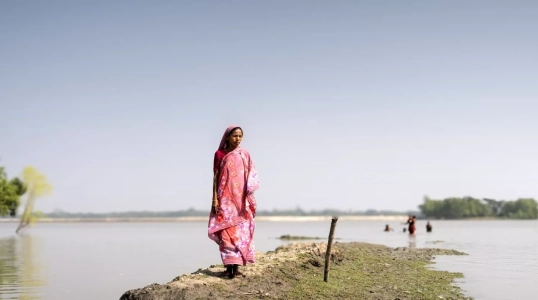
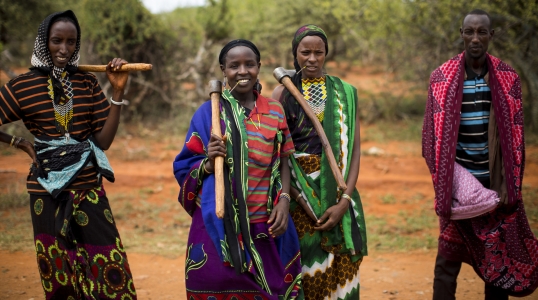
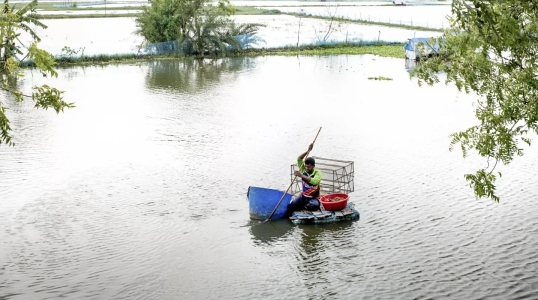
Join our community of supporters passionate about ending world hunger.